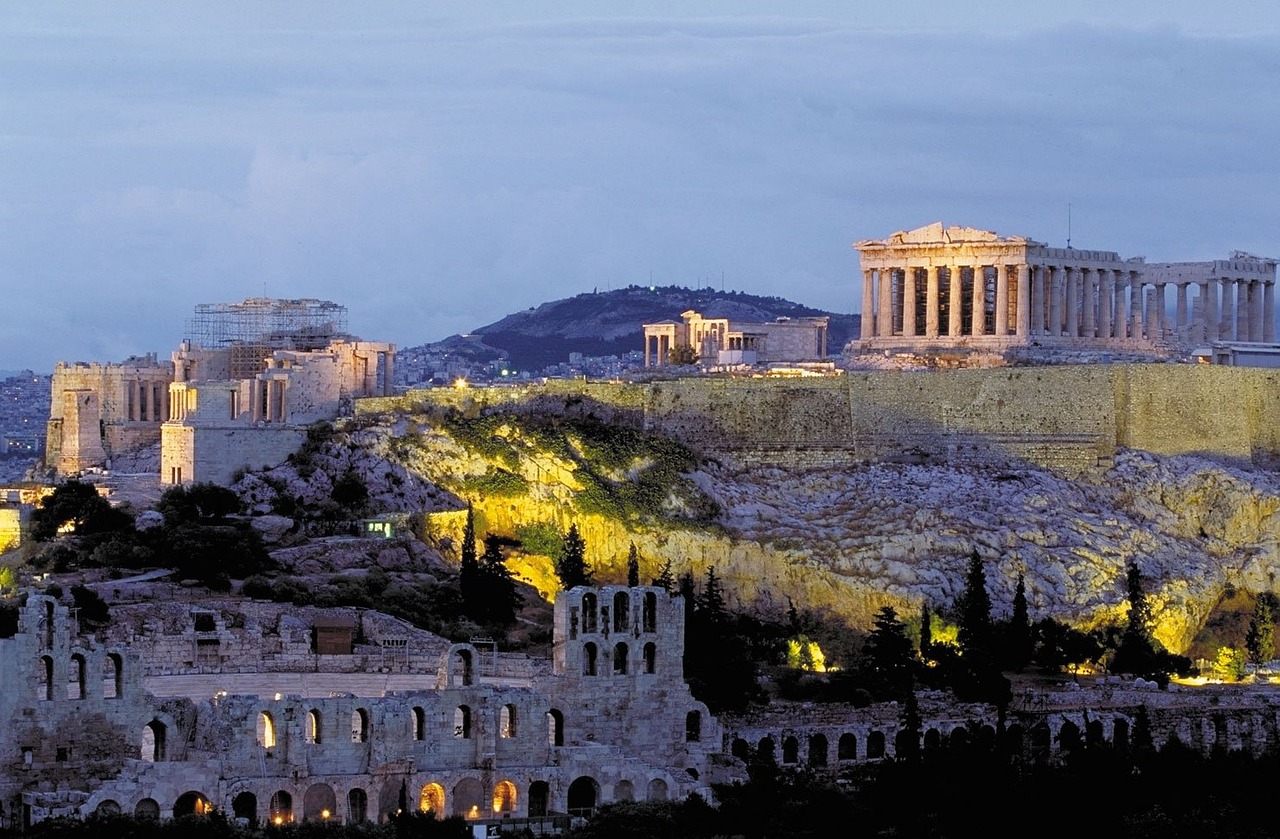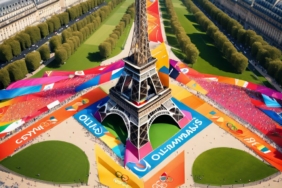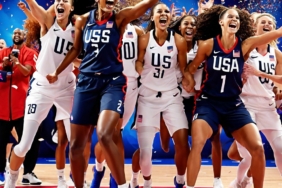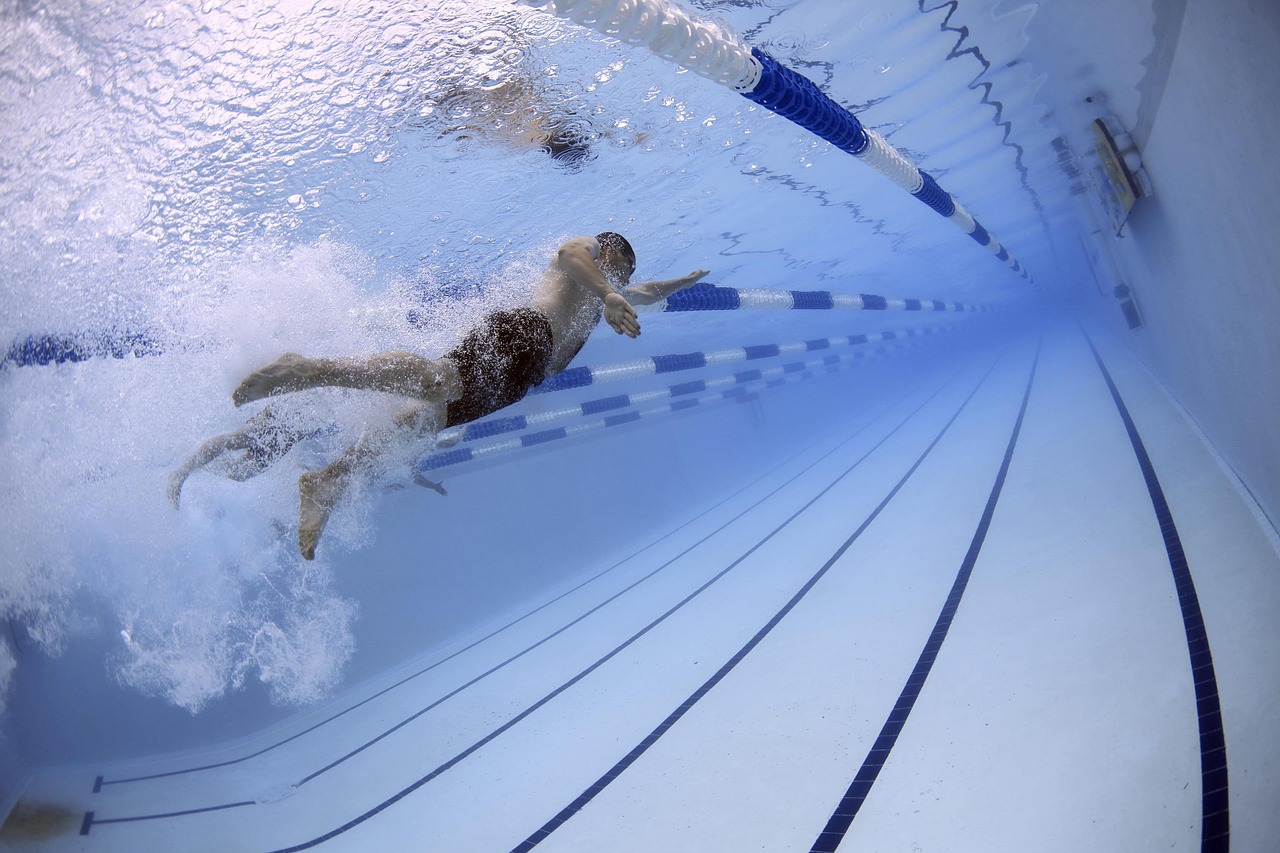The Resurgence of Olympic Viewership: A Closer Look at the Paris Games
It feels like an eternity since Léon Marchand had an entire nation rallying behind him with every powerful stroke at the La Défense Arena, before Simone Biles captivated us as she soared through the women’s gymnastics all-around competition, prior to Steph Curry mesmerizing the French crowd at Bercy Arena, and before the U.S. women’s basketball team secured a nail-biting finish, clinching their eighth consecutive gold medal. Amidst this excitement, a pressing question lingered as the world gathered in the City of Light: Could the Olympics reclaim its former glory?
In the lead-up to Paris, Olympic viewership had seen a significant downturn in recent years. The Tokyo Olympics, postponed and held amidst the COVID-19 pandemic, averaged just 15.6 million viewers per night across NBC’s various television and digital platforms in 2021. The 2022 Beijing Winter Olympics fared even worse, averaging a mere 11.4 million viewers, marking the least-watched Olympics in modern history. This was a stark contrast to the 19.8 million average for the 2018 Winter Games in Pyeongchang, South Korea.
However, the tide turned in France’s capital. From the opening ceremony to Saturday’s conclusion, NBCUniversal reported a remarkable 16-day total audience delivery average of 31.3 million viewers across its combined live Paris Prime (2-5 p.m. ET) and U.S. prime time (8-11 p.m. ET/PT). Final numbers are expected to be released this week. Notably, there were extraordinary viewership figures, including a staggering 12.7 million viewers tuning in on NBC and Peacock to witness Biles and Team USA secure gymnastics gold on a Tuesday afternoon.
It is essential to note the important context: NBC aggregated its viewership numbers for the Paris Games to encompass live viewing from 2-5 p.m. ET, involving NBC, Peacock, USA Network, CNBC, E!, and additional NBCU digital platforms, alongside U.S. prime-time viewership on NBC, Peacock, and USA Network. (Total audience delivery is based on live-plus-same day custom fast national figures from Nielsen and digital data from Adobe Analytics.) The network argued that this revised methodology more accurately reflects viewership information for Paris, as viewers had never before had the option to watch a fully produced live Olympics on NBC or Peacock during the daytime, in addition to the traditional prime time coverage, which was a curated presentation after the competition day had concluded in Paris, six hours ahead of Eastern time in the U.S. This was a selling point to advertisers.
“We decided to be progressive in our thinking about how we present the Games,” stated Mark Lazarus, the chairman of NBCUniversal Media Group, in an interview late last week. “We chose to modernize our production and our presentation of the Games. When we changed our methodology on presentation, we did so in collaboration with the marketing community.”
Personally, I believe these have been the best Olympics of my lifetime, and this sentiment comes from someone who has covered the Olympics on-site in Salt Lake City, Athens, Turin, Beijing, Vancouver, London, and Sochi. Unlike previous experiences, I witnessed these Games through NBC and Peacock, and the ability to experience events live on Peacock while later watching a curated presentation was an outstanding experience.
As the Olympic flame extinguishes over Paris, here are 20 media-centric reflections and insights from the Paris Games:
- 1. NBC heavily incorporated celebrities into its presentation, a trend likely to continue in future Olympics. The opening ceremony featured performances by Kelly Clarkson and Peyton Manning, while the closing ceremony showcased Jimmy Fallon. Snoop Dogg made frequent appearances, and there were numerous crowd shots of celebrities, including John Travolta. While some may have found the celebrity-laden coverage excessive, NBC stands firm in their approach, viewing the Olympics as a blend of sport and entertainment, especially given the time difference that limits live sports during prime time.
- 2. NBC’s “Gold Zone” coverage, inspired by the “NFL RedZone” format, streamed daily from 7 a.m. to 5 p.m. on Peacock and provided an engaging and modern way to experience the Games. It ranked among the top five most-watched Olympics titles on Peacock and was a technological triumph given the numerous elements involved. Scott Hanson, the long-time host of “NFL RedZone,” was a brilliant choice, garnering positive media attention for that move. Fellow hosts Matt Iseman, Andrew Siciliano, and Jac Collinsworth delivered the necessary high-energy atmosphere for the production.
- 3. The standout broadcast talent for me was the primary race callers for the track and field events—NBC’s Leigh Diffey and Rob Walker from the Olympic Broadcasting Service. Diffey’s commentary was exceptional, particularly during Quincy Hall’s victory in the men’s 400 meters and Cole Hocker’s triumph in the men’s 1500 meters. Although he missed calling Noah Lyles’ race, I believe he deserves some grace for moments like that, as he does not have the luxury of a delete key. NBC’s team, including Sanya Richards-Ross, Ato Boldon, Kara Goucher, Trey Hardee, Paul Swangard, and Lewis Johnson, consistently provided excellent coverage. Walker’s expertise was evident on Peacock, demonstrating his adeptness at race calling.
- 4. Laurie Hernandez displayed an innate ability to communicate gymnastics to a wider audience, coupled with genuine enthusiasm for her former teammates’ successes (she and Biles secured gold in the team competition at the 2016 Rio Olympics). This made for a remarkable viewing experience when watching women’s gymnastics live on Peacock.
- 5. I felt that NBC’s coverage of swimming was notably light on addressing the recent revelations regarding numerous positive drug tests among Chinese swimmers. This global issue deserved more than the cursory mention it received during NBC’s prime-time rebroadcast of the swimming events last Sunday night, especially as China claimed gold in the men’s 4×100-meter medley relay.
- 6. Numerous NBA broadcasting positions are expected to become available as NBC and Amazon prepare to enter the market as media rights holders in 2025. Given his Hall of Fame status and the exposure he received in Paris, Dwyane Wade is likely to attract serious interest from networks if he chooses to pursue a career in broadcasting. Wade has indicated he has worked with both a speech and vocal coach in preparation for this new challenge. “When I was asked to take on this role, I approached it as one of the biggest challenges in my 2024 calendar year,” Wade said. “I decided to immerse myself in it, knowing I would learn a lot on the fly. Being able to sit next to Noah (Eagle) has prompted me to ask many questions about this world, including basic terms like ‘What does No. 1 mean?’ I’m not afraid to admit what I don’t know. Most importantly, I want to be authentic and bring my unique perspective on basketball to the airwaves.” NBC Sports president Rick Cordella confirmed that no talent decisions have been finalized for NBC’s NBA coverage, although Mike Tirico and Eagle will have significant roles as play-by-play voices, with Tirico designated as the primary announcer.
- 7. Expect NBC to leverage the multi-view feature from the Peacock Olympic experience for its Premier League coverage. “This feature makes the most sense when multiple events are taking place simultaneously, which isn’t the case with Big Ten football or a single NFL game,” Cordella explained. “However, for the Premier League’s Saturday morning windows, you can anticipate seeing that. I can’t guarantee this feature will be ready at launch, but it will certainly be incorporated over time.”
- 8. NBC was pleasantly surprised by the daytime viewership numbers during the Games. One plausible explanation is the increase in remote work arrangements in the post-COVID world. “We managed to build a substantial audience,” Cordella stated. “For instance, a men’s basketball game at 11:50 in the morning attracted 11 million viewers. Peacock often recorded close to five million daily streamers. This has been one of our most significant surprises.” The most remarkable afternoon viewership figure occurred on Saturday when NBC and Peacock averaged 19.5 million viewers for the U.S. men’s basketball team’s thrilling victory over France. This marked the most-watched gold medal game since the 1996 Atlanta Olympics, with viewership peaking at 22.7 million during the final quarter.
- 9. Regarding the reception of NBC’s handling of the opening ceremony, Lazarus acknowledged the varied opinions. “In 7,000 hours, it’s natural to encounter differing views, and I respect that,” he said. “Concerning the opening ceremony, we had a general outline of the events but encountered elements we couldn’t anticipate. My perspective is that we simply document the proceedings. We didn’t comment on the more controversial aspects. As long as we maintain our role as an outlet showcasing the organizing committee’s proceedings without inserting our commentary, we believe we’ve avoided creating controversy.”
- 10. I reached out to followers on X for their thoughts on NBC/Peacock’s coverage of the Paris Games, yielding some fascinating responses.
- 11. As I reported last week after discussions with NBC Sports executives, I would be surprised if Snoop Dogg doesn’t return for future Olympics. He became a storyline in his own right during the Paris Games, and I anticipate NBC will welcome him back for future editions.
- 12. While NBC will always have a U.S.-centric focus—understandably so—they significantly underrepresented the prime-time coverage of the final day of the women’s heptathlon. Belgium’s Nafissatou Thiam achieved an extraordinary feat by winning her third consecutive Olympic heptathlon gold medal; however, this achievement received minimal attention as the coverage primarily revolved around American Anna Hall. Although Hall is a remarkable athlete with an inspiring story and is poised to shine in Los Angeles four years from now, it was essential to provide more coverage of Thiam, as she is a once-in-a-lifetime talent in her event.
- 13. The executive producer and president of NBC Olympics production is Molly Solomon, who holds the distinction of being the first woman in this role. Since covering the Olympics, I’ve rarely seen NBCU receive such favorable overall feedback on social media as they did during Paris—a trend that matters alongside traditional viewership metrics. Some of this positive perception is undoubtedly linked to the thrilling events (the U.S. performed exceptionally well), but it also reflects how the audience perceived the production and its user-friendly approach. Solomon is now positioned to lead NBCU in what will be its most significant and highly anticipated production—the Los Angeles Games—in four years.
- 14. Will viewers remain engaged with Peacock after the Games conclude? Data will emerge in a couple of months. Cordella noted that 70 percent of those who signed up for the NFL wild-card game in January were still using Peacock two months later. “We have promising data showing that people who join for sports tend to stick around,” he added. “We’re also fortunate that mid-August marks the approach of football season, with Big Ten games and NFL games on Peacock, including the exclusive NFL game during the opening weekend in Brazil (Eagles-Packers).”
- 15. Personally, I felt mixed about how NBC presented the opening ceremony. I would appreciate seeing a more traditional blend of sports or news figures participating instead of an overwhelming celebrity presence. (I don’t expect NBC to heed my suggestions for the 2026 Games in Italy or the L.A. Olympics.)
- 16. Lazarus assured that the Olympics would be financially beneficial for NBCU. “We will exceed our revenue goals and achieve greater revenue than we’ve ever recorded for an Olympics,” he remarked. “We’ll enjoy a nice profit, and I’m sure we’ll discuss it during an earnings call at some point.”
- 17. Lewis Johnson, who has served as an Olympics reporter for NBC since the Sydney Games, primarily focuses on track and field during the Summer Games. He consistently delivers for viewers by posing pertinent questions and capitalizing on his position as a member of the host broadcasting team to uncover details for the audience, as he did with Noah Lyles in Paris. Each Olympics, I find myself impressed with his performance.
- 18. Rowdy Gaines announced that the 2028 Olympics will mark his final stint as a commentator. While NBC has utilized Michael Phelps as a sort of roving correspondent in Paris, he has excelled as a swimming commentator when assigned. NBC should actively pursue Phelps as a potential replacement for Gaines, with both set to contribute to swimming coverage in L.A.
- 19. The live closing ceremony was where NBC’s celebrity emphasis was particularly pronounced. One must ask: What value did Jimmy Fallon really bring to viewers? His inquiry to Katie Ledecky, “When do you fly home or are you going to swim home?” exemplified a focus on cross-promotion over genuine audience value. Terry Gannon, Tara Lipinski, Johnny Weir, and Tirico were more than capable of handling the coverage.
- 20. Kudos to Getty Images photographers Hector Vivas and Ezra Shaw for their outstanding work. Explore their captivating photos from the Games.
(Top photo of NBC correspondent Snoop Dogg: Carl Recine / Getty Images)


















